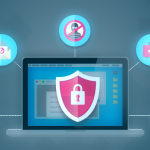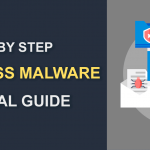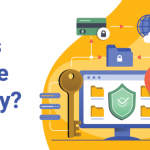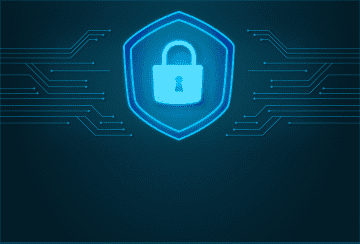Tips To Protect Your Website From Hackers
October 03, 2022 | By Admin
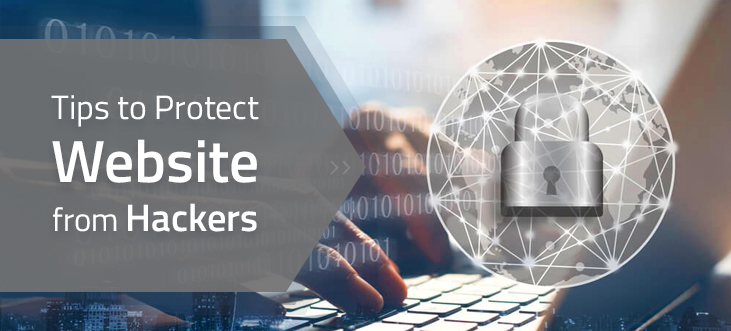
How to Secure a Website from Hacking?
Follow the below instructions to learn how to prevent hackers on your website:
There are many reasons for you to protect your website from hackers. If you have an eCommerce website then you would probably have already faced a hacking attempt. Hackers target even simple websites and you would not even guess the reason. You need website security.
Why do Hackers Hack Websites?
- deface your website
- knock your website offline
- steal data from your website - user databases, financial records and other proprietary information. Malicious software could capture credit card details in real-time.
- hold your website to ransom (ransomware attack)
- use your server to relay webmail spam
- use your server to serve illegal files
- use your server as part of a botnet for distributed denial-of-service (DDoS) attacks
- use your server to mine for Bitcoins
The repercussions of your website getting hacked are quite severe. The malware on your website could steal the data, and hackers could sell it on the dark web or use it for malicious activities. The malware needed to compromise websites is also available as attack-for-hire services. This allows even those users without significant Internet skills to attack and cripple or compromise your website.
10 Security Steps to Protect Your Website From Hackers
Follow the below website security tips to prevent & protect your website from being hacked:
Updated Software
Protection Against Cross-Site Scripting (XSS) Attacks
SQL injection attacks
Double Validation of Form Data
File Upload Policy
Use a Hosting Provider
Firewall
Separate Database Server
Ensure HTTPS Security
Password Policy
Website Security Tips:
1.Updated Software
You must always keep the operating system software, other application software (such as a content management system), the antimalware solution and the website security solution updated with the latest patches and definitions. Your hosting provider must also keep their software updated – however that control is not in your hands. You must choose a hosting provider that maintains a reputation for providing effective security.
2.Protection Against Cross-Site Scripting (XSS) Attacks
Hackers can inject malicious JavaScript into your pages, and change the content, and when users access your webpages their credentials and login cookie details would get stolen. You must not allow any injection of active JavaScript content into your webpages, to ensure website security.
3.SQL injection attacks
you must always use parameterized queries and avoid standard Transact SQL as this would allow hackers to insert rogue code.
4.Double Validation of Form Data
It is advisable to perform both browser and server-side validation. The two-level validation process would help block the insertion of malicious scripts through data accepting form fields.
5.File Upload Policy
Based on your business requirement you may need to allow users/ website visitors to upload files or images to your webserver. Hackers could upload malicious content to compromise your website. The image, in reality, could be malware (double extension attacks). You must allow the upload of files only with extreme caution. You must remove executable permissions for the file so that it cannot be executed, in order to ensure website security.
6.Use a Hosting Provider
Hosting your website with a hosting provider frees you from much of the website security risk burden, as they would take care of the website security for the webserver.
7.Firewall
When you maintain your web server you must employ a robust firewall and restrict outside access only to the ports - 80 and 443.
8.Separate Database Server
If you can afford it, then it would be advisable to maintain a separate database server and web servers, as it offers better security to the data.
9.Ensure HTTPS Security
Always use HTTPS for your entire website. This would ensure that users do not communicate with fraudulent servers.
10.Password Policy
Implement rigorous password policies and ensure that they are followed. Educate all users on the importance of strong passwords. Follow recommended password length of more than 8 characters with a mix of upper and lower case alphabets, numerals and special characters. Do not use dictionary words. The longer the password, the stronger is the website security.
If you need to store passwords for user authentication, ensure that you always store them in encrypted form. Use a hashing algorithm, and also salt the hash to make it more secure.

Website Security Tools
These are absolutely necessary, as it is manually impossible to monitor and manage website security. There are numerous free as well as paid tools. Further, there is the option of using tools that you can manage, as well as, tools being offered as Security-as-a-Service (SaaS) models.
How to Protect Your Web Server from Hackers?
The Comodo cWatch Web is a Managed Security Service (MSS) operating in a Security-as-a-Service (SaaS) model. It is a fully managed complete web security solution that includes a managed web application firewall, DDoS protection, bot protection, SIEM threat detection, caching real content delivery network, daily malware & vulnerability scan and website acceleration. Additionally, it offers free Instant Malware Removal, website hack repair, full blacklist removal and vulnerability removal through its 24/7 cyber security operation center.
The Comodo cWatch Web contains unique sophisticated web security features that are not available in other website security tools.
 Useful Resources :
Useful Resources :

 (19 votes, average: 4.42 out of 5)
(19 votes, average: 4.42 out of 5)